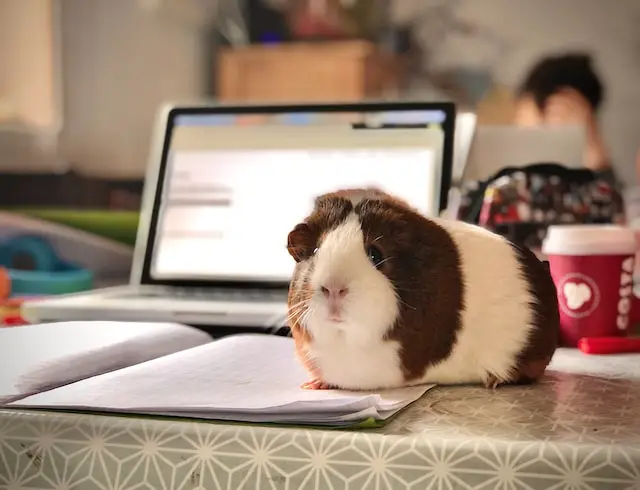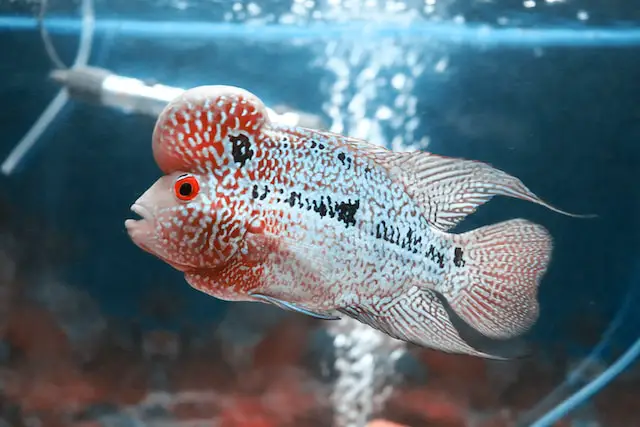Guinea Pigs as Pets: A Comprehensive Guide
Guinea Pigs as Pets: A Comprehensive Guide
If you’re considering adding a furry friend to your family, look no further than the adorable and affectionate guinea pig. Guinea pigs, also known as cavies, are charming and social animals that make delightful companions. As someone who has had the pleasure of caring for guinea pigs for years, I am thrilled to share my insights and advice on how to provide the best possible life for these lovable pets.
Choosing a Guinea Pigs as Pet
Why Guinea Pigs Make Great Pets
Guinea pigs are small, gentle creatures with distinct personalities. They are friendly, curious, and enjoy interacting with their human caretakers. Unlike some other pets, guinea pigs rarely bite, making them suitable for families with children.
Understanding Guinea Pig Behavior
To ensure a happy and healthy relationship with your guinea pig, it’s essential to understand their behavior. From their vocalizations to body language, deciphering their cues will help you better communicate and care for them.
Considerations Before Getting a Guinea Pigs as Pet
Bringing a guinea pig home is a commitment that requires careful thought. Factors such as space, time, and resources should be considered to ensure you can provide the best possible care for your new furry friend.
Setting Up a Comfortable Home
Selecting the Right Cage
A spacious and secure cage is a must for guinea pigs. Learn about the different types of cages available and the best options for your pet’s well-being.
Creating a Cozy Bedding Area
Guinea pigs love to snuggle in soft bedding. Explore various bedding materials and create a comfortable sleeping area for your little companions.
Providing Nutritious Food and Fresh Water
A balanced diet is crucial to keep your guinea pig healthy and happy. Learn about the right foods to offer and how to ensure a constant supply of fresh water.
Socializing and Bonding
The Importance of Social Interaction
Guinea pigs are social animals that thrive on companionship. Discover the benefits of bonding with your pets and how it positively impacts their overall well-being.
Building Trust with Your Guinea Pig
Trust is the foundation of a strong bond. Discover effective ways to gain your guinea pig’s trust and create a loving relationship.
Fun Playtime and Exercises
Keeping your guinea pigs mentally and physically stimulated is essential for their happiness. Learn about exciting playtime activities and exercises to keep them active and engaged.
Grooming and Hygiene
Proper Coat Care
Maintaining your guinea pig’s coat is essential to prevent matting and keep them clean. Discover grooming tips and the tools you need for proper coat care.
Trimming Nails and Dental Health
Regular nail trimming and dental care are critical for guinea pig health. Learn how to perform these tasks safely and efficiently.
Bathing Do’s and Don’ts
Guinea pigs are generally clean animals that groom themselves. However, there are situations where bathing might be necessary. Find out how to bathe your guinea pig without causing stress.
Healthcare and Veterinary Visits
Identifying Signs of Illness
Guinea pigs can hide signs of illness well, making it essential to recognize the subtle clues of potential health issues. Learn about common signs of illness and when to seek veterinary care.
Regular Check-ups and Preventative Care
Prevention is better than cure. Discover the importance of regular veterinary check-ups and how preventative care can help keep your guinea pig in top-notch condition.
Common Guinea Pig Health Issues
Being aware of common health issues that affect guinea pigs can help you respond promptly to any health concerns. Familiarize yourself with potential problems and their solutions.
Handling and Taming Techniques
Handling with Care
Guinea pigs are delicate creatures, and handling them with care is crucial to prevent injuries and build trust. Learn the proper way to hold and support your guinea pig.
Taming a Shy or Skittish Guinea Pig
Some guinea pigs might be timid at first, but with patience and gentle handling, they can become more confident and sociable. Discover taming techniques to help your pet become more comfortable around you.
Handling Common Behavior Issues
Biting and Nipping
Understanding the reasons behind biting or nipping behavior in guinea pigs can help you address the issue effectively and prevent it from escalating.
Excessive Chewing or Gnawing
Guinea pigs have a natural instinct to chew, but excessive chewing can be a problem. Learn how to redirect this behavior to keep your pet safe and prevent damage to their cage.
Dealing with Aggression
While guinea pigs are generally docile, occasional aggression may occur. Learn how to handle aggressive behavior and foster a peaceful environment for your pets.
Introducing Multiple Guinea Pigs
Pairing Compatible Guinea Pigs
If you plan to have multiple guinea pigs, proper pairing is crucial to ensure harmony among them. Understand how to introduce new guinea pigs and encourage bonding.
The Bonding Process
Bonding is a gradual process that requires patience and understanding. Learn how to facilitate bonding between your guinea pigs and create a happy group.
Managing Group Dynamics
In a multi-guinea pig household, it’s essential to monitor and manage group dynamics to prevent conflicts and ensure all pets feel safe and loved.
Traveling with Guinea Pigs
Preparing for Trips
Traveling with guinea pigs requires careful planning. Discover the steps to prepare your pets for a safe and stress-free journey.
Safety Tips for Traveling
When traveling with guinea pigs, their safety is a top priority. Learn how to ensure their well-being during trips and prevent accidents.
Guinea Pig-Proofing Your Home
Identifying Hazards
Guinea pigs are curious creatures, and they might get themselves into trouble if the environment isn’t safe. Learn how to identify potential hazards in your home.
Securing the Environment
Keeping your guinea pig’s play area secure is essential to prevent escapes and accidents. Find out how to create a safe and enjoyable space for your pets.
Understanding Guinea Pig Vocalizations
Interpreting Different Sounds
Guinea pigs communicate through a variety of vocalizations. Learn to decipher their different sounds and understand what your pet is trying to tell you.
Communicating with Your Pet
By understanding their vocalizations, you can respond to your guinea pig’s needs and strengthen your bond with them.
Guinea Pig Breeding and Reproduction
Responsible Breeding Practices
Breeding guinea pigs require responsible decision-making to ensure the health and well-being of both parents and offspring. Learn about ethical breeding practices.
Caring for Pregnant Guinea Pigs and Babies
If your guinea pig becomes pregnant, special care is needed during this time. Discover how to provide proper care for pregnant guinea pigs and their newborns.
Saying Goodbye: Coping with the Loss of a Guinea Pig
Mourning the Loss
Saying goodbye to a beloved guinea pig can be emotionally challenging. Find comfort and support during the grieving process.
Providing Comfort and Support
Discover ways to provide comfort and support for yourself and your remaining guinea pig after the loss of a companion.
Conclusion: Guinea Pigs as Pets
Guinea pigs are undoubtedly delightful pets that bring joy and love into our lives. With proper care, attention, and understanding, they can thrive and become cherished members of the family. Remember to cherish every moment with these furry friends, and they will reward you with endless affection and companionship.
FAQs
-
Can guinea pigs live alone or do they need companionship?
Guinea pigs are social animals that thrive in the company of their own kind. While some guinea pigs can live alone without significant issues, they generally do better with companionship. If you can, consider adopting at least two guinea pigs to keep each other company and prevent loneliness.
-
What are the best vegetables to feed my guinea pig?
Guinea pigs require a balanced diet that includes a variety of vegetables. Some excellent options include leafy greens like kale, spinach, and romaine lettuce, as well as bell peppers, carrots, and cucumbers. Remember to introduce new foods gradually and avoid feeding them toxic items like onions and garlic.
-
How do I know if my guinea pig is sick?
Observing changes in behavior is crucial in detecting illness in guinea pigs. Look out for signs such as loss of appetite, lethargy, changes in stool, or unusual discharges. If you notice any of these signs, it’s essential to seek advice from a veterinarian experienced in treating guinea pigs.
-
What’s the best way to introduce two guinea pigs to each other?
When introducing two guinea pigs, it’s essential to do it gradually in a neutral space. Ensure there are hiding spots and plenty of space to reduce stress. Supervise their interactions, and if there’s any aggression, separate them and try again later. Be patient, as it might take time for them to get along.
-
Can I let my guinea pig roam freely around the house?
While it might be tempting to let your guinea pig roam freely, it’s not recommended. Guinea pigs are prone to accidents and can chew on harmful items. Instead, create a safe and secure play area with supervised playtime outside the cage to ensure their safety.




